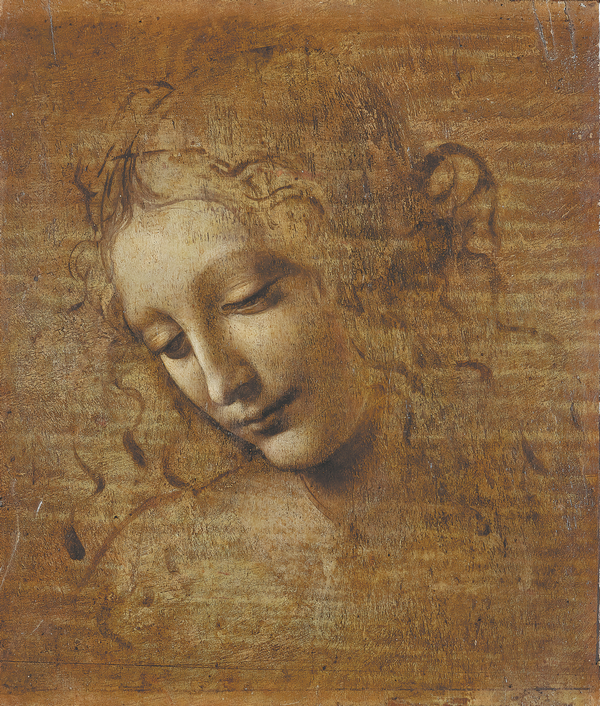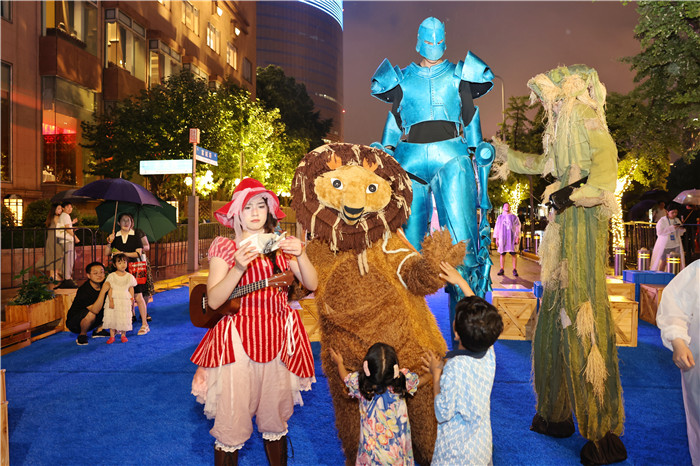Major artists share spotlight at exhibitions

La Scapigliata, oil, umber, and white lead pigments on a poplar wood panel, by da Vinci. CHINA DAILY
Going big on da Vinci
As the largest display of work by da Vinci (1452-1519) in China, the Shanghai Museum's Who Is Leonardo Da Vinci? is based on a dialogue between Renaissance masters, led by da Vinci, and Chinese artists from the same period.
The highlight is La Scapigliata, or the lady with disheveled hair, from the collection of the Galleria Nazionale di Parma, the only oil painting of the artist's that may be displayed overseas.
The last time it traveled abroad was in 2019 for an exhibition at the Louvre Museum in Paris, according to Chu Xiaobo, director of the Shanghai Museum.
Eleven pages from the Codex Atlanticus, a set of drawings and texts, will be shown in China for the first time. The manuscript, which is now part of the collection of the Biblioteca Ambrosiana in Milan, covers a wide range of subjects, including studies and sketches of paintings, mechanics, mathematics, astronomy as well as inventions such as the parachute, war machinery and hydraulic pumps.
Presented by the Shanghai Museum and the Institute Giovanni Treccani for the publication of the Italian Encyclopedia, the exhibition features 18 treasured Renaissance artworks from Italy, as well as 18 ancient Chinese paintings from the collection of the Shanghai Museum.
Also on display are pieces by other Renaissance masters, including two sketches by Michelangelo (1475-1564), and paintings by pupils of da Vinci.
The Shanghai Museum has selected 18 paintings from its collection of Chinese art as part of an artistic dialogue with the Renaissance masters. The most famous is arguably Tang Yin's (1470-1523) Lady With Fan in the Autumn Breeze, according to Ling Lizhong, the head of the ancient Chinese painting and calligraphy department at the Shanghai Museum.
Also known as Tang Bohu, Tang Yin is a household name in China, and this painting is regarded as one of his most famous, even though it has been 25 years since it was last on public display at the Shanghai Museum.
La Scapigliata is an unfinished painting in oil, umber and white lead pigments on a small poplar wood panel. It is the outline of a young woman, face gently angled downward, disheveled hair flowing behind her with half-closed eyes and ambiguous smile. It is frequently compared to the Mona Lisa.
"Museum-goers will find that Chinese artists had developed a completely different set of techniques to depict similar subjects, such as the portrait of a woman," says Ling, referring to Tang's painting, which dates to around the same period.
"The Shanghai Museum is the only institution capable of having an exhibition of this kind," says D'Arelli, also the curator.
"Thanks to its large and colorful collection, we can now imagine this dialogue between da Vinci, the Italian Renaissance, and the masterpieces of his Chinese contemporaries."
 Contact Us
Contact Us

 Brilliant light show to illuminate Huangpu River
Brilliant light show to illuminate Huangpu River Maple leaves paint splendid scenery in Pudong
Maple leaves paint splendid scenery in Pudong Appreciate alluring lotus blossoms in Pudong's Century Park
Appreciate alluring lotus blossoms in Pudong's Century Park New pedestrian street boosts Pudong's night economy
New pedestrian street boosts Pudong's night economy 


